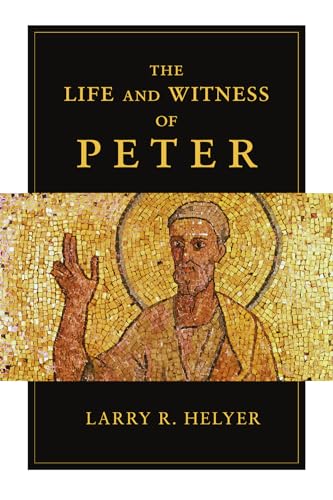God Is a Communicative Being: Divine Communicativeness and Harmony in the Theology of Jonathan Edwards
Written by William M. Schweitzer Reviewed By Nathan A. FinnOver the past quarter century, numerous scholars have attempted to identify the center of Jonathan Edwards’s theology. These attempts have engendered lively debates among Edwardsean scholars. Presbyterian pastor William Schweitzer offers his own proposal in his book God Is a Communicative Being: Divine Communicativeness and Harmony in the Theology of Jonathan Edwards. Schweitzer’s monograph revises his dissertation at the University of Edinburgh. It is an important work that merits a close reading by scholars and others interested in Edwards’s theology.
Many scholars have emphasized the importance of divine communication (God’s sharing of himself) in Edwards’s thought, particularly those influenced by the work of Princeton Theological Seminary theologian Sang Hyun Lee. Schweitzer goes a step further, arguing that the Triune God’s communication of himself is central to Edwards’s thought and that it is closely tied to the harmony of all reality, which reflects the inter-Trinitarian harmony of God. According to Schweitzer, for Edwards “all of reality is the harmonious communication of the Triune divine mind” (p. 6).
Schweitzer divides his book into six chapters. The first chapter outlines Edwards’s understanding of theology proper. For Edwards, communicativeness is the core attribute of God and the reason for his works of creation and redemption. As Edwards writes in Miscellany 332, referenced throughout Schweitzer’s study, “God is a communicative being.” God’s communication of himself reflects and arises from the inter-Trinitarian communication among the Father, Son, and Spirit. Chapters two and three examine Edwards’s understanding of God’s self-communication through general and special revelation. In these chapters, Schweitzer focuses upon Edwards’s well-known emphasis upon typology, even in nature, and shows how Edwards’s views were in part an apologetic against Enlightenment (specifically Deistic) accounts of divine revelation.
Chapter four builds upon chapter three in sketching out Edwards’s view of Scripture. For Edwards, and contra Deists and skeptics, the Bible is harmonious and authoritative because it is communicated by the Triune God who is himself characterized by these attributes. Chapter five discusses Edwards’s understanding of history as the staging ground for God’s harmonious communication of himself in creation and redemption. Scripture provides the lens through which Christians can understand God’s work in history. The final chapter discusses how Edwards’s pastoral work, promotion of revival, autobiographical “Personal Narrative,” and even unfinished writing projects served to advance his understanding of divine communication and harmony. As a pastor, revivalist, and theologian, Edwards was playing a secondary role in God’s great work of divine communication as he brings about his sovereign purposes in the church and, ultimately, all creation.
Schweitzer makes a compelling case for the centrality of divine communication and harmony in Edwards’s theology. Though Schweitzer has been influenced by more philosophical accounts of Edwards’s theology, Schweitzer also understands Edwards to be an heir to and re-framer of the Reformed Orthodoxy he inherited from the Continental theologians whose writings he devoured. Even more important, Schweitzer combines these (oft-competing) interpretations of Edwards as constructive Enlightenment thinker and Edwards as apologist for Calvinism and situates them in Edwards’s actual vocation: Edwards as pastor-theologian. The result is a balanced portrait that avoids the pitfalls of anachronistic or simplistic portraits so common among both scholars and popular authors alike.
Despite the weighty material being considered, Schweitzer’s account is clear (though at times repetitive) and demonstrates the thesis in every chapter. While some scholars will no doubt disagree that divine communication and harmony is at the very center of Edwards’s theology, most will have to concede it is near the center and was a chief concern of Edwards. Though the volume is priced out of range for most pastors, those who do read God Is a Communicative Being will appreciate how Edwards thoughtfully applied his views in his own pastoral ministry. Highly recommended.
Nathan A. Finn
Nathan A. Finn (PhD, Southeastern Baptist Theological Seminary) serves as provost and dean of the university faculty at North Greenville University. He is co-editor of the forthcoming volume Historical Theology for the Church (B&H Academic, 2021).
Other Articles in this Issue
Carl Ferdinand Howard Henry (1913–2003) was an American theologian in the conservative evangelical tradition...
Will everyone one day be saved? Is hell only temporary, if it exists at all? If the answer is yes to either of these questions, the historic Christian commitment to the conversion of the world to Christ would appear to be somewhat silly...
People rightly note the way Christians in English-speaking Western culture have moved in a generation from being ‘moral majority’ to ‘immoral minority’...
In recent years a number of stances have arisen that have set themselves over against traditional evangelicalism and traditional Reformed thought, not a few of them arguing, in part, on the basis of a particular understanding of the kingdom...
Abounding in the Work of the Lord (1 Cor 15:58): Everything We Do as Christians or Specific Gospel Work?
by Peter OrrOne of the deepest impacts of the Reformation on Western Culture arose from the robust rearticulation of the biblical doctrines of creation and vocation...







